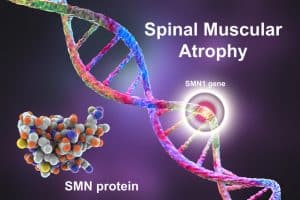ABPI looks to breathe new life into industry relations
pharmafile | May 20, 2009 | Feature | Medical Communications, Sales and Marketing | ABPI, doctors, industry relations, medical education, vita
The ABPI has unveiled a new proactive agenda which it hopes will help improve the industry’s reputation and relationships with stakeholders.
The new strategy has emerged from many months of consultation with ABPI member companies and stakeholders, and involves a major reshuffle within the organisation.
Opinion polls show the pharma industry is held in high esteem by the British general public, but the sector nevertheless frequently finds itself under attack, with its marketing tactics often criticised.
Now the organisation has unveiled the four-pronged ‘VITA’ (Latin for life) agenda which ABPI director general Dr Richard Barker says will take it “off the back foot and onto the front foot”.
VITA stands for Value, Innovation, Trust and Access. These four key areas will be the focus of new development work conducted by the ABPI, member companies and stakeholders.
An end to the chequebook mentality
Among the most immediate changes being put forward are a ban on many types of existing promotional gifts to doctors, which are seen as frivolous and unrelated to clinical practice.
More significantly, the ABPI is also proposing a move toward sharing funding for continuing medical education (CME) for doctors with other organisations.
Both these proposals were contained in the Royal College of Physicians report published in February this year, but the ABPI want to take the lead on the ideas rather than wait to have them forced upon them.
ABPI president and AstraZeneca’s UK managing director Chris Brinsmead unveiled the approach at the organisation’s annual conference in London on 29 April. He said the new approach represented a major shift for the industry.
“We have to stop doing things that don’t add value. In short, we need to behave differently.”
On the subjects of providing gifts he said: “We need to stop being seen as a chequebook and be seen instead as a partner.” However an outright ban on gifts, as some stakeholders would like to see, is not being proposed.
“The idea is that there should be a focus on patient care – for example peak flow meters rather than pens and Post-Its,” said Brinsmead, and stressed that the move would only be made once a full consultation with stakeholders had been carried out.
The message was similar on the more complicated issue of CME, for which the majority of funding currently comes from the industry.
The ABPI will also consult on whether industry should fund health professionals to attend external conferences and company meetings (ie by providing travel expenses and conference registration fees).
It will also seek views on financial support to patient organisations – specifically whether funding should be detailed in precise amounts and published in full on the websites of companies.
Leading the ‘Trust’ agenda will be Andy Powrie-Smith. His appointment is one of the most significant moves, as his background in the voluntary sector means he brings a new perspective to the sector.
He said the industry must accept that some accusations of improper influence are well founded, and that pharma must genuinely re-examine its practices. “It’s not a PR exercise about what we do already, it is about real change. We need to create a new social contract between the industry and wider society based on trust.”
VITA: Value, Innovation, Trust, Access
The VITA strategy is built around three-year work programmes in four strategic areas or ‘imperatives’, with short and longer term targets identified.
The ABPI says its restructuring of its own workings has removed silos, reduced headcount and created clear roles to produce results on the strategic imperatives
It says the ‘committee-bound’ approach will now be replaced with campaign teams with membership widened and refreshed with outside experts.
The VALUE imperative
Led by the ABPI’s commercial director David Fisher, this aims to “establish the UK as one of the best environments in the world for valuing and rewarding innovative medicines as cost effective solutions for preventing and treating disease”
The aim is to:
• Create an evidence base of how to rectify/improve the assessment of cost effectiveness thereby establishing ABPI positions on: the definition of ‘value of a medicine’ to be used in HTA; HTA bodies’ methods and processes; and workable processes for flexible pricing and access
• Activate third party support for industry arguments via improved understanding of HTA and innovation by clinicians, patient groups, NHS managers and helping companies improve HTA submissions through training and consultancy
• Leading a campaign that employs the evidence base, ABPI positions and third parties to: demonstrate the UK’s relatively low (compared with the EU) medicine prices; align measures of health outcomes with the medicines bill, to demonstrate medicines’ value for money and make clear the link between use of medicines and the UK pharma industry.
The INNOVATION imperative
This area is led by lead by Richard Barker and split into three themes – skills, open innovation, and clinical trials.
Skills:
• Drive implementation to close skills gap
• Create a Life Sciences Council
• Establish a Science Diploma (to ensure the skill base for practical and technical roles)
Open Innovation:
• Build high-quality research clusters
• Partnership with and between higher educational institutions
• Rebuilding industry-academic collaboration and PhD and postdoctoral level
• Create UK leadership in development of personalised medicines
Clinical Trials:
• Rebuild UK position in global clinical trials
• Consolidate UK leadership in proof of concept/experimental medicine studies
• Conduct HTA-ready studies in outcomes/fitness of reimbursement
The TRUST imperative
Led by Andy Powrie-Smith, the TRUST imperative will create a new contract between industry and society based on integrity, honesty, knowledge, appropriate behaviour, openness and trust.
Trust is seen as the key to creating an environment in which Access, Value and Innovation imperatives flourish.
Key areas:
• Our narrow model of engagement with the prescriber which has left us out of touch with a great number of stakeholders, so we do not know what society thinks about access to, and the value of medicines, about pricing, innovation, animal research, the developing world and corporate social responsibility.
• The perception that some of our behaviours are designed to inappropriately influence prescribing and this exists because some of our behaviours do precisely that.
• Our industry is seen as guarded. In our communications we react to threats and problems while staying firmly in the bunker when things go well.
We have programmed responses on issues like profit, pricing and animal research but are less proficient in promoting much of what is great about the industry.
The ACCESS imperative
Led by David Fisher and supported by Natacha Deschamps-Smith, this will focus on ensuring the right patients receive the right medicine and dose, at the right time throughout the UK.
The new PPRS agreement includes an agreement to monitor the uptake of medicines and compare with international benchmarks.
David Fisher says these will need to be “appropriate and realistic” and says similar past schemes have been fatally compromised.
David Fisher said: “Despite licence and even NICE approval, the UK tends to lag far behind its EU counterparts when it comes to actually prescribing new medicines to patients and this can cost lives.
The ACCESS imperative will agree, prior to engagement with the Department of Health, essential indicators and appropriate benchmarks.
The top priorities would most likely include:
• The percentage of total healthcare budget spent on medicines
• The total volume of medicine use per capita
• The volume of innovative medicines used as a percentage of the total volume of medicines used per capita
• The percentage of patients who receive the medicines as a percentage of the overall number of patients implied by NICE, SMC or AWMSG guidance (and guidance in Northern Ireland, when the process is established)
• Additionally, data on health outcomes, aligned to therapy class and disease.
Engagement programmes
The ABPI says ‘major engagement programmes’ at the local (PCT), regional (SHA), and national (England, Scotland, Wales and NI) levels will create the desire for improved uptake of medicines.
Further projects to build on joint working between the industry and NHS will be taken forward as recommended by the LTLS Partnership Working Group.
As part of the ongoing strategy to drive forward outreach partnerships, the Guidance on joint working and the ABPI Code of Practice will be launched.
Related Content

Men’s health – a new report from the Department of Health and Social Care
The UK Department of Health and Social Care has published a new report entitled Men’s …

The November 2020 issue of Pharmafocus is available to read free online now!
The latest monthly edition of Pharmafocus is available to read for free online now!

UK life sciences industry does not want no-deal Brexit, says ABPI Chief
Prime Minister Boris Johnson’s sudden change of position that the UK is now expecting a …






